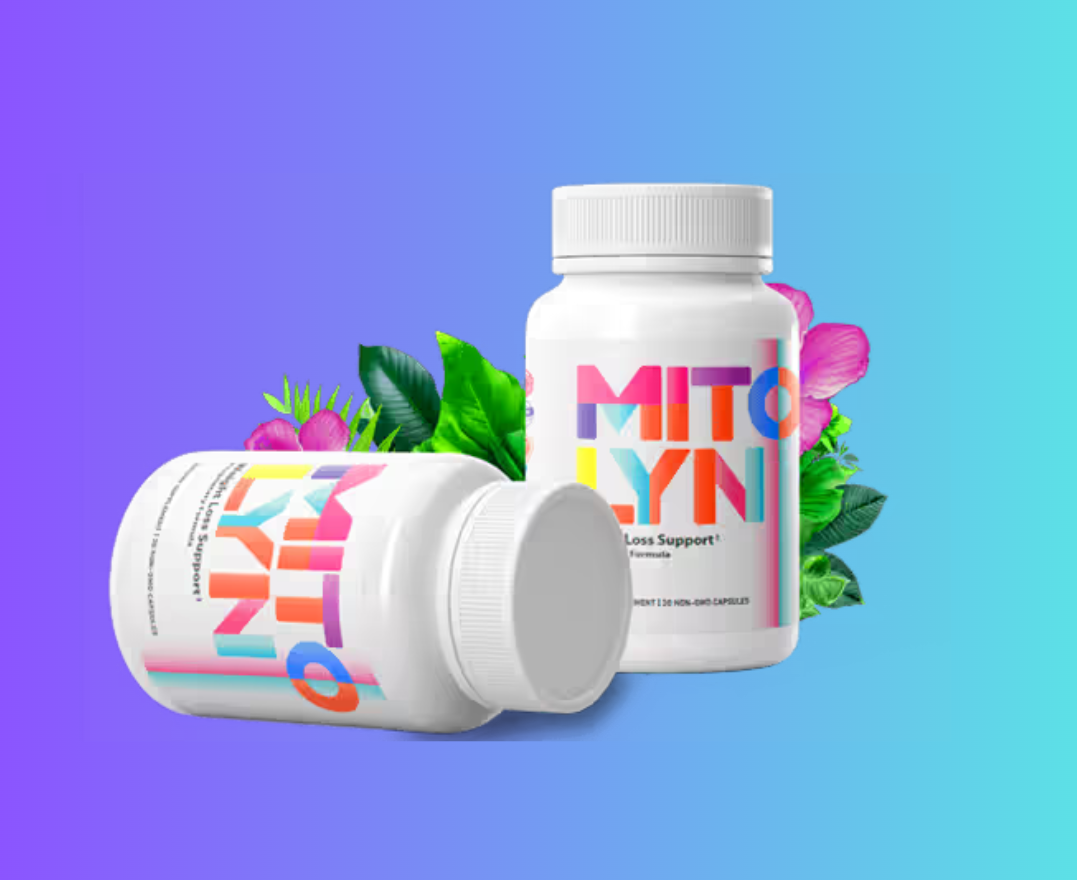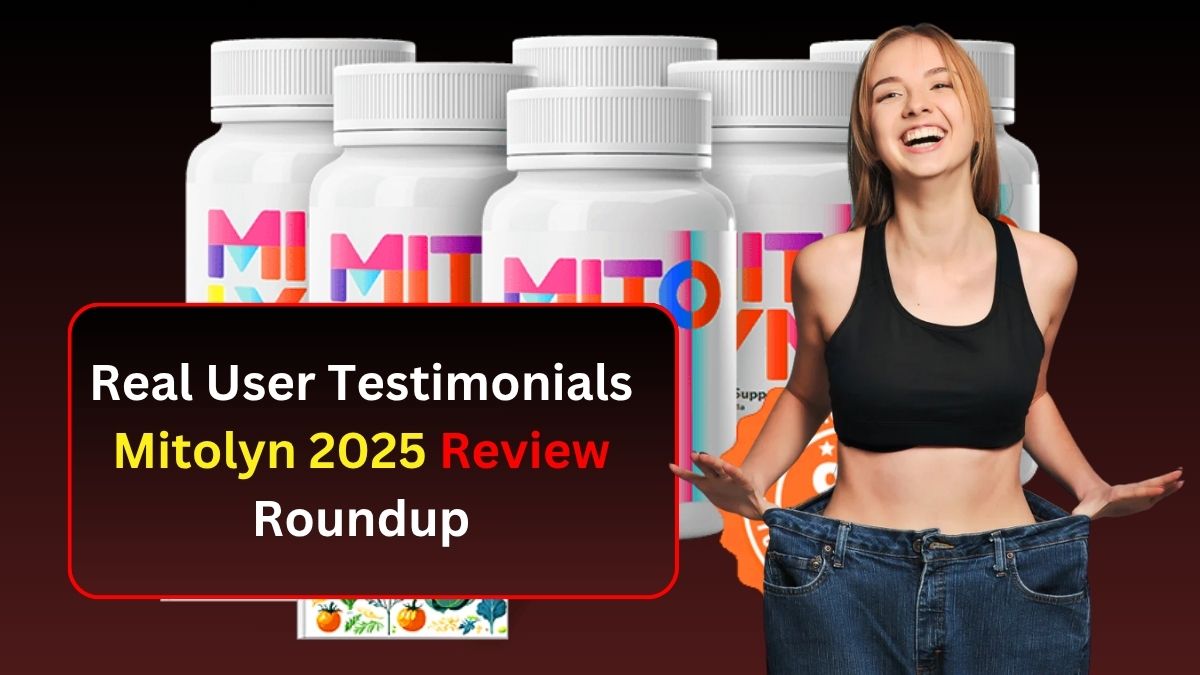Mitolyn Supplement Review – Benefits, Ingredients, Side Effects & Where to Buy
Mitolyn Supplement Review – The Complete Guide to Boosting Your Metabolism Naturally

If you’ve been struggling with slow metabolism, stubborn fat, and low energy levels, you’re not alone. Millions of people worldwide face similar challenges, especially as they age or deal with hormonal imbalances. That’s where mitolyn comes into play — a revolutionary dietary supplement formulated to target the root cause of weight gain by optimizing mitochondrial function.
In this comprehensive review, we’ll dive deep into everything you need to know about Mitolyn:
-
What it is and how it works
-
The science behind its formula
-
Benefits you can expect
-
Ingredients and their proven effects
-
Potential side effects
-
Dosage and usage guidelines
-
Customer reviews and testimonials
-
Pricing and where to buy
Let’s get started.
What is Mitolyn?
Mitolyn is a natural health supplement designed to boost mitochondrial activity, enhance metabolism, and support fat loss. The mitochondria are often referred to as the “powerhouses” of your cells, as they convert nutrients into energy. Over time, aging, stress, and poor lifestyle habits can reduce mitochondrial efficiency, leading to:
-
Slower metabolism
-
Fat accumulation (especially belly fat)
-
Chronic fatigue
-
Brain fog
-
Hormonal imbalances
Mitolyn’s unique formula addresses these issues directly, helping your body burn calories more efficiently, improve energy production, and support overall well-being.
How Does Mitolyn Work? – The Science Behind It
Mitolyn works by activating and rejuvenating the mitochondria in your cells. This process involves:
1. Cellular Energy Production
The ingredients in Mitolyn help your mitochondria convert glucose and fat into ATP (Adenosine Triphosphate) more effectively. This gives you sustained energy throughout the day.
2. Fat Oxidation
By improving mitochondrial function, Mitolyn promotes fat oxidation — the process of breaking down stored fat for energy. This is particularly effective for targeting stubborn fat areas.
3. Anti-Inflammatory & Antioxidant Support
Chronic inflammation and oxidative stress damage your mitochondria. Mitolyn contains antioxidants and anti-inflammatory compounds that protect and repair them.
4. Hormonal Regulation
Some ingredients in Mitolyn help balance hormones like insulin and cortisol, which play a critical role in metabolism and fat storage.
Key Benefits of Mitolyn
Here are some of the top benefits users report from taking Mitolyn regularly:
-
Faster metabolism – Burn calories more efficiently.
-
Enhanced fat loss – Especially from stubborn areas like the belly, thighs, and arms.
-
Increased energy levels – Feel more alert and active all day.
-
Better focus & mental clarity – Improved brain function thanks to better mitochondrial health.
-
Reduced fatigue – Combat tiredness caused by poor cellular energy production.
-
Support for healthy aging – Protects cells from oxidative damage.
-
Improved hormonal balance – Helps regulate metabolism-related hormones.
Mitolyn Ingredients – What’s Inside?
Mitolyn is formulated with a combination of vitamins, minerals, herbal extracts, and amino acids that work synergistically to improve mitochondrial function. While the exact proprietary formula may vary, common ingredients include:
1. L-Carnitine
Helps transport fatty acids into the mitochondria for energy production, aiding fat loss and stamina.
2. Alpha Lipoic Acid (ALA)
A powerful antioxidant that protects mitochondria from oxidative stress and improves glucose metabolism.
3. Coenzyme Q10 (CoQ10)
Supports ATP production and enhances overall energy levels.
4. Green Tea Extract
Rich in catechins that boost metabolism and promote fat burning.
5. Resveratrol
Protects cells from aging and improves mitochondrial function.
6. Magnesium
A mineral essential for energy production and muscle function.
7. B-Vitamins Complex
Supports energy metabolism and nervous system health.
How to Take Mitolyn – Dosage & Usage Guide
The recommended dosage for Mitolyn is typically 2 capsules per day, taken with a glass of water. For best results:
-
Take one capsule in the morning and one in the evening.
-
Pair with a balanced diet and regular physical activity.
-
Stay hydrated to aid metabolic processes.
-
Use consistently for at least 90 days for maximum benefits.
Possible Side Effects of Mitolyn
Mitolyn is made from natural, non-GMO ingredients and is generally safe for most adults. However, possible mild side effects may include:
-
Nausea (if taken on an empty stomach)
-
Headache (rare)
-
Mild digestive upset
Precautions:
-
Not recommended for pregnant or breastfeeding women.
-
Consult your doctor if you are taking prescription medication or have a medical condition.
Mitolyn Customer Reviews
Here’s what real users are saying:
Jessica R., 42: “After 3 months on Mitolyn, I’ve lost 15 pounds and my energy is through the roof! I no longer have that afternoon crash.”
Mark T., 51: “I feel sharper, more energetic, and my workouts have improved significantly. Mitolyn is a game changer.”
Sophia L., 37: “I’ve tried many supplements, but this is the only one that actually helped me lose belly fat while keeping my energy high.”
Where to Buy Mitolyn & Pricing
To ensure you get the genuine product, it’s best to purchase Mitolyn only from its official website. Buying from the official source guarantees:
-
Authentic product
-
Exclusive discounts & bundle deals
-
60-day money-back guarantee
Final Verdict – Is Mitolyn Worth It?
If you’ve been struggling with slow metabolism, stubborn fat, or low energy, Mitlyn could be the natural solution you’ve been looking for. Its science-backed formula supports mitochondrial health, which is essential for energy production, fat burning, and overall vitality.
With thousands of satisfied customers and a risk-free money-back guarantee, trying Mitolyn is a smart choice for anyone serious about improving their health and metabolism.





